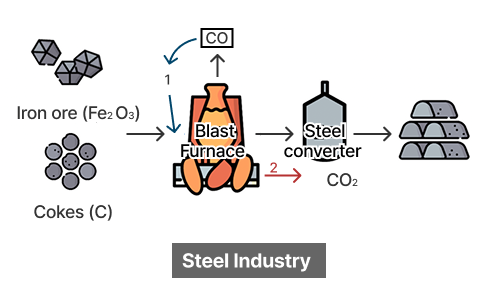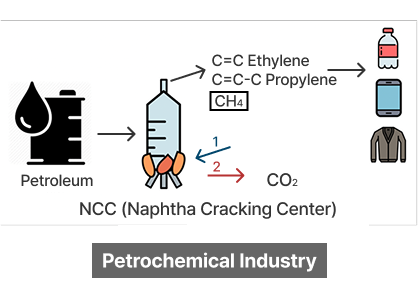Significant greenhouse gas reduction
As the pressure to achieve carbon neutrality intensifies, it is imperative to reduce the vast CO2 emissions resulting from the combustion of by-product C1 gases.
To meet the 2030 NDC and achieve carbon neutrality by 2050, technological solutions are essential to drive substantial
carbon reductions in the industrial sector. In particular, Korea’s core industries—such as steel and petrochemicals - emit
significant amounts of greenhouse gases during raw material conversion processes.
Advancing C1 gas conversion technologies for industrial by-products is
therefore both urgent and necessary
to reduce these emissions and reach national climate goals.


